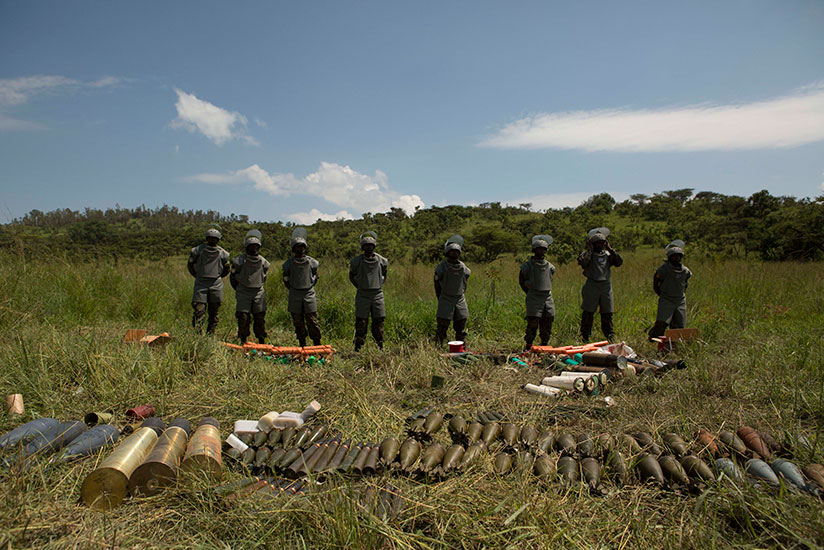
Rwanda destroys 130 tonnes of waste ammunition

Rwanda Defence Forces (RDF) has launched an eight-day disposal and destruction operation for more than 130 tonnes of ammunition in Gabiro, Gatsibo district in Eastern Province, local online website, the New Times reports.
The exercise is part of the government continued efforts to control the growth of small arms and light weapons.
Speaking during the first detonation, the executive secretary of the Regional Centre on Small Arms (RECSA), Theoneste Mutsindashyaka, said that the proliferation and misuse of small arms and light weapons is ranked as one of the most pressing security threats in the world today.
According to Mutsindashyaka, only a quarter of the millions of small arms in circulation worldwide are held by states, while the rest are left to the discretion of civilians and non-state actors.
Mutsindashyaka further called on governments to take measures to ensure security and management of weapons and ammunition to prevent them from falling into the wrong hands.
He suggested that civilian ownership should be controlled; regulating arms flow and enhancement of infrastructure and systems management of state-owned weapons – which include arms marking, electronic record keeping and destruction of obsolete and unserviceable weapons.
Mutsindashyaka commended the government of Rwanda for its continued efforts to meet its obligations under the Nairobi protocol and other instruments on small arms and light weapons.
The Nairobi protocol for the prevention, control and reduction of small arms and light weapons in the Great Lakes region, the Horn of Africa and bordering states, was signed on 15th March 2000 by the Ministers of Foreign Affairs and/or Representatives of the Governments of Burundi, DRC, Djibouti, Ethiopia, Eritrea, Kenya, Rwanda, Sudan, Tanzania and Uganda.
The Protocol requires certain national legislative measures, the strengthening of operational capacity and sufficient measures to control Small Arms and Light Weapons (SALW )both state-owned and in civilian possession.






